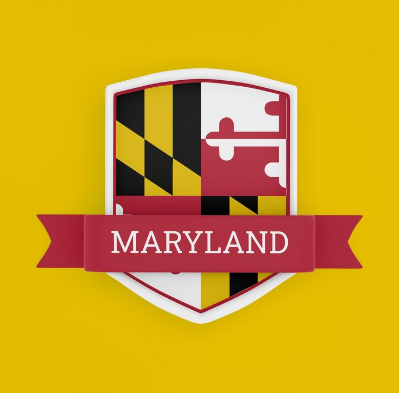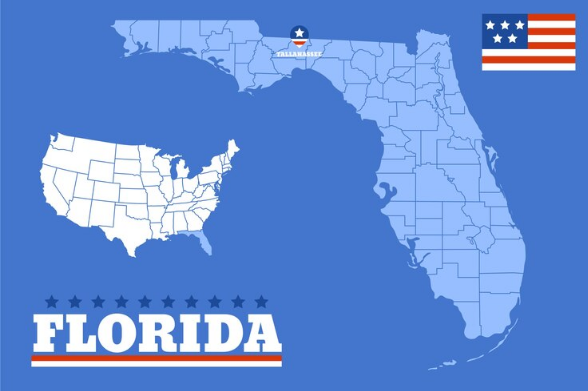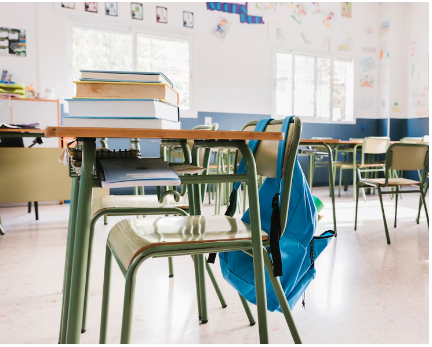Dyslexia Schools In Illinois

When evaluating dyslexia-friendly schools in Illinois, it's essential to apply a rigorous, multi-faceted approach to ensure that these institutions truly support students with dyslexia.
Schools should be assessed based on their ability to offer specialized programs, trained staff, evidence-based teaching methods, and access to assistive technology.
In Illinois, schools that are considered dyslexia-friendly often excel in these areas, providing a supportive environment that fosters academic and personal growth for students with dyslexia.
By collaborating with experts, collecting data through surveys and observations, and validating findings with parents and educators, we can confidently recommend schools that genuinely meet the needs of dyslexic students.
Continuous monitoring and feedback ensure that these recommendations remain relevant and effective, offering Illinois families reliable guidance in choosing the right educational setting for their children.
This article will guide you through some of the top dyslexia-friendly schools in the area, providing you with the information you need to make an informed decision for your child's education.
The schools recommended have been carefully evaluated based on their specialized programs, the dedication of their staff, and their use of proven teaching methods.
We’ve spoken with parents, educators, and experts, and seen firsthand what works. The schools that made the list have shown a real commitment to helping students with dyslexia succeed, both academically and personally.
We want to make sure you have the information you need to choose a school where your child will feel supported, understood, and encouraged to reach their full potential.
What is the Percentage of Dyslexia Amongst Students In Illinois?
Dyslexia is a common learning difficulty, and experts estimate that about 5% to 10% of students in Illinois may have it. This estimate is based on national and state-level data.
- The International Dyslexia Association says that 15–20% of the population may show signs of dyslexia, but only 5–10% are typically diagnosed in schools.
- In Illinois, dyslexia is grouped under a category called “specific learning disability,” which includes trouble with reading, spelling, and processing language.
- According to the U.S. Census (2021), about 3.7% of children aged 5–15 in Illinois have a cognitive disability. Many of these children may have dyslexia or similar learning challenges.
- Illinois passed a law (House Bill 4362) that requires early dyslexia screening for students starting in the 2022–2023 school year. This will help schools identify more students with dyslexia.
Sources: ( https://dyslexiaida.org ) ( https://www.census.gov ) (https://www.ilga.gov )
Legislation and Policies for Dyslexia In Illinois
Here’s Illinois legislation and policies for dyslexia, with reputable claims and links to primary sources:
1. Public Act 098‑0705 (HB 3700, 2014)
- Recognition & Advisory Board: Officially recognizes dyslexia as a learning disability and creates a reading instruction advisory group to train teachers on identifying and supporting dyslexia using multisensory, systematic reading approaches.
- Screening & Intervention Requirements: Requires school boards to provide screening tools, administer age-appropriate dyslexia screenings (starting at kindergarten), offer professional development on intervention strategies, and distribute the International Dyslexia Association’s dyslexia definition.
Sources (dyslegia.com, illinois.gov)
2. Public Act 101‑0666 (HB 4406, 2020)
- Universal Dyslexia Screening: Mandates that, starting in the 2020–21 school year, all K–2 students must be screened with a universal screener approved by the Illinois State Board of Education (ISBE). Those flagged as “at risk” must undergo a Level I dyslexia screening (ilga.gov).
- Tiered Support via MTSS: Recognizes that students showing characteristics of dyslexia must be provided interventions under a Multi-Tiered System of Support (MTSS) (ilga.gov).
- State-Level Dyslexia Specialists: Requires ISBE to hire at least 5 dyslexia specialists or therapists with a minimum of five years’ field experience to guide districts (ilga.gov).
3. Public Act 102‑539 (SB 4227, 2022 → Effective August 20, 2021)
- Formalizes Screening Law Details: Codifies screening rules within the School Code (Sections 10‑20.85 and 34‑18.82), including definitions of “universal screener” and “dyslexia screening,” and clarifies screening steps for K–2 students (ilga.gov).
- Parental Consent: Requires parental consent before conducting dyslexia screenings, with opt-out options and exemptions for students already receiving intervention .
- Data Tracking & Reporting: Requires districts to report data on identification rates and intervention use; ISBE publishes these findings online (ilga.gov).
4. HB 1124 (2023 Regular Session, pending Governor’s signature)
- Strengthened Screener Protocol: Expands on prior laws by defining who must be screened, detailing interpretation of results, and requiring structured literacy instruction as per the ISBE dyslexia handbook (ilga.gov).
- New State Specialists by 2024: Requires employment of five dyslexia specialists/therapists by January 1, 2024, to oversee district-level implementation (ilga.gov).
5. HB 2918 (Introduced in 2025)
- Revises Effective Date & Technical Assistance: Proposed update that adjusts the effective start to July 1, 2025, and calls for ISBE to provide technical assistance to school districts implementing screening and intervention protocols .
6. Illinois Dyslexia Handbook & ISBE Guidance
- Comprehensive Guidelines: ISBE’s "Dyslexia Guide: A Handbook for Parents, Educators, and Students" includes detailed guidance on screening, data interpretation, MTSS frameworks, and accommodations (isbe.net).
- Integration with Special Education: ISBE integrates dyslexia policies with broader Special Education regulations, embedding dyslexia supports in state guidance .
What Type of School Is Best For a Dyslexic?
The ideal schools are the ones where students can learn without all that unnecessary stress weighing them down.
Plus, these schools are all about recognizing the unique strengths that come with dyslexia, like creativity and thinking big-picture.
If your kid has a special interest, whether it's engineering, chess, music, or anything else under the sun, these schools give them the time and space to chase their passions.
Forget about just hunting for "reading programs" right away because, believe it or not, dyslexic students often thrive when their reading lessons align with their interests.
Now, here's the deal: if your child isn't loving school and isn't coming home all pumped up about learning, it might be time to explore other options. And guess what? That's perfectly okay – even awesome.
You can take your child out of a place that doesn't fit, even if you don't have the next school lined up right away. It's a powerful message to your child that you're in their corner and ready to support them.
Let them take a breather, catch up on some sleep, and in the meantime, you can figure out the next steps together.
Looking for learning difference/dyslexia friendly schools? Here are some must ask questions to help you pick the right dyslexia friendly school for your child.
Before attending your meeting, do a bit of background research. The more you know about dyslexia, teacher education programs and intervention programs, the more targeted you can be with your questions and the better you will understand the answers.
Support Services for Students with Dyslexia in Illinois
1. Everyone Reading Illinois
- A statewide nonprofit with over 40 years of experience, offering professional development for educators, family support, and public awareness initiatives.
- Hosts the annual “Dynamics of Dyslexia” conference, plus dyslexia simulations and workshops for parents and teachers (everyonereadingillinois.org).
2. Illinois SLD Support Project (ISBE & Eastern Illinois University)
- Provides free training and continuing education (PDHs) to Illinois educators focused on dyslexia, dysgraphia, and dyscalculia (sldsupports.org).
- Offers a comprehensive Dyslexia Handbook and Toolkit to guide school-based identification, assessment, and evidence‑based interventions (sldsupports.org).
Also read Best Autism Schools in New York (For Children and Adults)
3. Children’s Dyslexia Center – Southern Illinois
- A free tutoring center operated by Scottish Rite, accredited by IMSLEC and IDA, offering one-on-one Orton‑Gillingham–based instruction for children (readwithdyslexia.com).
4. Illinois State Board of Education (ISBE) – Resources & Assistive Technology
- Provides a Catalog of Supports including the “Dyslexia Guide” for parents/educators and guidance on MTSS/RTI frameworks.
- Coordinates access to accessible instructional materials (e.g., audiobooks, Braille) through NIMAC, Learning Ally, and the Illinois Instructional Materials Center (isbe.net).
5. Learning Disabilities Association of Illinois (LDA‑IL)
- Offers a $500 scholarship to Illinois students with dyslexia or other learning disabilities pursuing post-secondary education (ldaillinois.org).
6. Section 504 and IDEA Legal Protections
- Under Section 504, students with dyslexia are entitled to accommodations (e.g. extra time, assistive tech) if disability impacts learning.
- Through IDEA, students may receive IEPs guaranteeing evidence-based services (e.g. structured literacy instruction), plus procedural safeguards and due-process rights (en.wikipedia.org).
7. Advocacy & Parent Resources (COPAA & Illinois CASA)
- COPAA (national) supports families in securing dyslexia services under IDEA/504, representing parents and advocating for rights.
- Illinois CASA provides webinars and guides on IEP advocacy, including dyslexia-specific content for parents and teachers (illinoiscasa.org).
8. Learning Ally
- A national nonprofit offering audiobooks, teacher training, and support networks for dyslexia, available to Illinois students through ISBE partnerships .
Best Dyslexia schools In Illinois
1. Brehm Preparatory School (Carbondale, IL)
- A highly specialized boarding & day school (grades 6–12+) for students with learning differences, including dyslexia.
- Recognized as a U.S. Dept. of Education Blue Ribbon School (1992–93) and accredited by NAIS & Independent Schools Assn. of the Central States.
- Small class sizes (avg 6:1), uses evidence-based approaches including the Arrowsmith Program to address cognitive learning challenges.
Website: https://www.brehm.org/
2. Hyde Park Day School (Chicago, IL)
- Private school serving K–8 students with language-based learning differences, including dyslexia.
- Combines small class sizes, individualized plans, and multisensory instruction rooted in structured literacy methods.
Website: https://www.hpds.org/
3. Wolcott School (Chicago, IL)
- A grades 9–12 program tailored to students with dyslexia and dysgraphia.
- Focuses on multisensory learning, executive function skills, and life skills to boost both academics and self-confidence.
Website: https://www.wolcottschool.org/
4. Children’s Dyslexia Center – Metropolitan Chicago (La Grange & Palatine)
- Free, Orton-Gillingham®–based tutoring centers serving K–12, accredited by International Dyslexia Association and IMSLEC.
- Provides certified tutor training and community education to spread structured literacy methods.
Website: https://chicagodyslexia.org/
5. Children’s Dyslexia Center – Chicago (Lakeview)
- Another branch offering free, structured OG tutoring in the Chicago Lakeview neighborhood.
- Part of the larger nationwide CDC network—trusted and IMSLEC/IDA-recognized.
Website: https://chicagodyslexia.org/
6. Children’s Dyslexia Center – Chicago (Palatine)
- Free tutoring for dyslexic students K–12; uses the Orton-Gillingham structured literacy approach.
- Offers families access to trained, certified tutors—high quality at no cost.
Website: https://chicagodyslexia.org/
7. Children’s Dyslexia Center – Springfield, IL
- A community-based free tutoring center operating since 2008, supporting over 120 children.
- Follows structured, multisensory language instruction in line with established CDC standards.
Website: https://www.childrensdyslexiacenters.org/centers/illinois-springfield/
8. Children’s Dyslexia Center – Southern Illinois
- Located in Belleville, IL; IMSLEC/IDA-accredited multi-sensory literacy tutoring for K–12.
- Delivers OG-based instruction for free, with certified tutors.
Website: https://www.childrensdyslexiacenters.org/
9. Children’s Dyslexia Center – Freeport, IL
- Serves the northwest Illinois region with free, structured OG reading support for school-aged children.
- Part of the nationally accredited CDC network.
Website: https://www.childrensdyslexiacenters.org/
10. Redwood Schools (Oak Park, IL – K–8)
- Designed specifically for “the dyslexic mind,” it delivers explicit, multisensory instruction to support reading, writing, and math skills.
- Focuses on strengths and evidence-backed structured literacy methods.
Website: https://www.redwoodschools.org/
11. The Written Word Center for Dyslexia and Learning (Wheaton, IL)
- Offers therapy-based options for students and adults with dyslexia; accredited by IMSLEC for structured literacy instruction .
- Combines tutoring, assessments, and training for educators.
Website: https://www.thewrittenwordtww.com/



